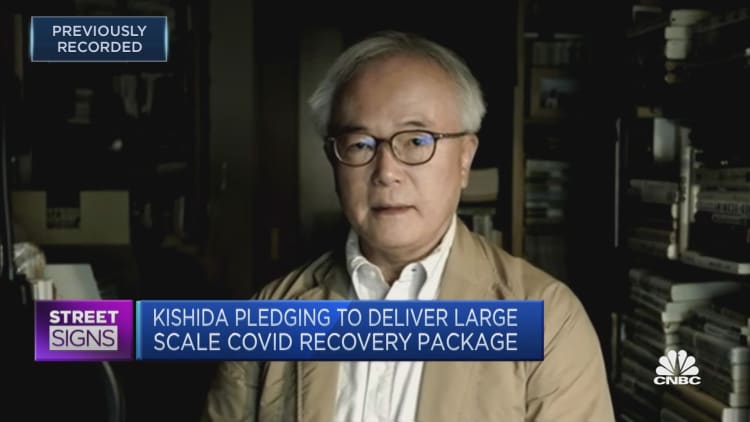Japan's economy contracted much faster than expected in the third quarter as global supply disruptions and fresh Covid-19 cases hit business and consumer spending, raising challenges for the new government's growth plans.
While many analysts expect the world's third-largest economy to rebound in the current quarter, worsening global production bottlenecks pose increasing risks to the outlook.
"The contraction was far bigger than expected due to supply-chain constraints, which hit output and capital spending hard," said Takeshi Minami, chief economist at Norinchukin Research Institute.
"We expect the economy to stage a rebound this quarter but the pace of recovery will be slow as consumption did not get off to a good start even after Covid-19 curbs were eased late in September."
The economy shrank an annualized 3.0% in July-September after a revised 1.5% gain in the first quarter, preliminary gross domestic product (GDP) data showed on Monday, compared with a median market forecast for a 0.8% contraction.
The weak GDP contrasts with more promising readings from other advanced nations such as the United States, which saw its economy expand 2.0% in the third quarter on strong pent-up demand.
On a quarter-on-quarter basis, GDP fell 0.8% compared with market forecasts for a 0.2% decline.

Prime Minister Fumio Kishida plans to compile a large-scale economic stimulus package worth "several tens of trillion yen" on Friday, but some economists were skeptical about its impact on growth near-term.
"The package will likely be a mixed bag of near-term and long-term growth measures, and the focus may be blurred, so it won't have much impact near-term," Norinchukin's Minami said.
Consumption fell 1.1% in July-September from the previous quarter after a 0.9% gain in April-June.
Capital expenditure also decreased 3.8% after rising a revised 2.2% in the previous quarter.
Domestic demand shaved off 0.9% point to GDP growth.
Exports lost 2.1% in July-September from the previous quarter as trade was hit by the chip shortages and supply-chain constraints.
Analysts polled by Reuters expect Japan's economy to expand an annualized 5.1% in the current quarter, as consumer activity and auto output pick up thanks to a drop in Covid-19 cases and easing supply disruptions.
Japanese firms still face risks from higher commodity costs and supply bottlenecks, which threatens to undermine the economic outlook over the short- to mid-term

